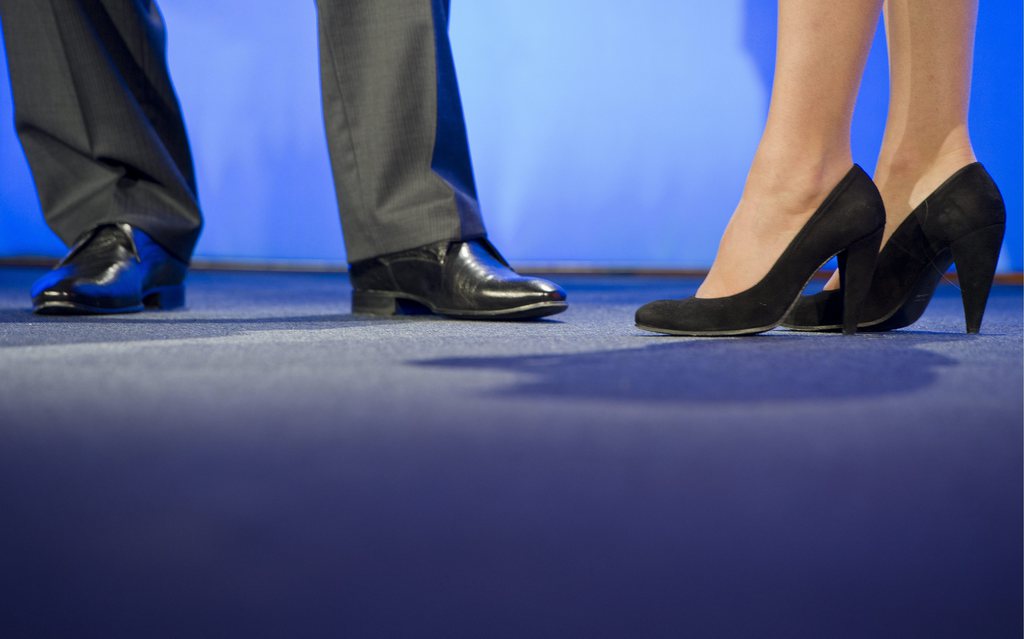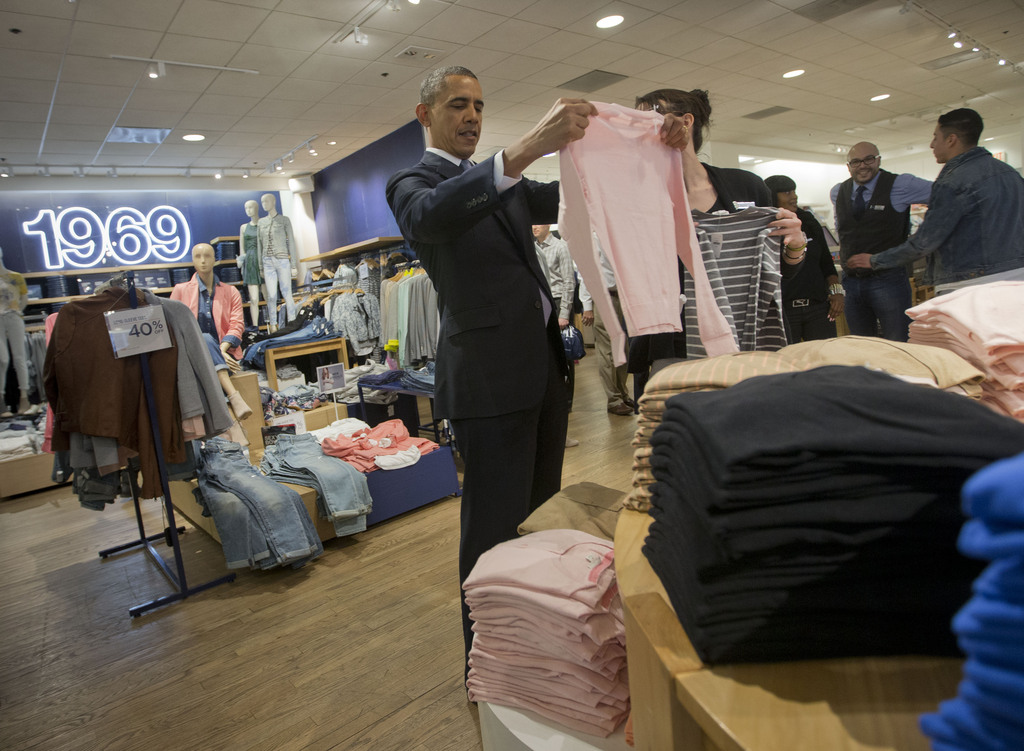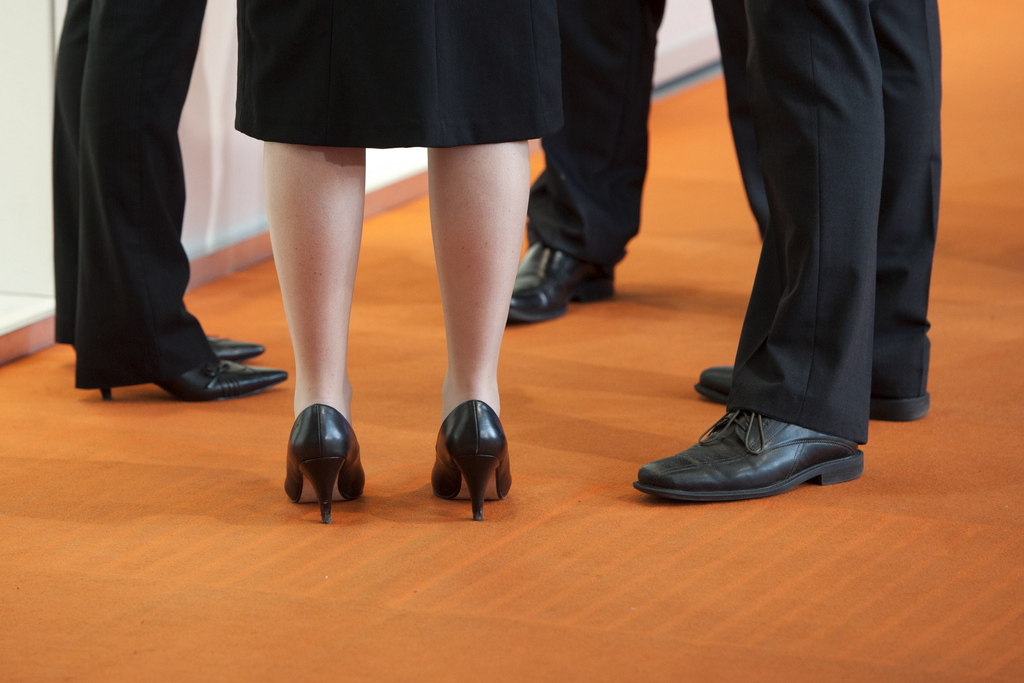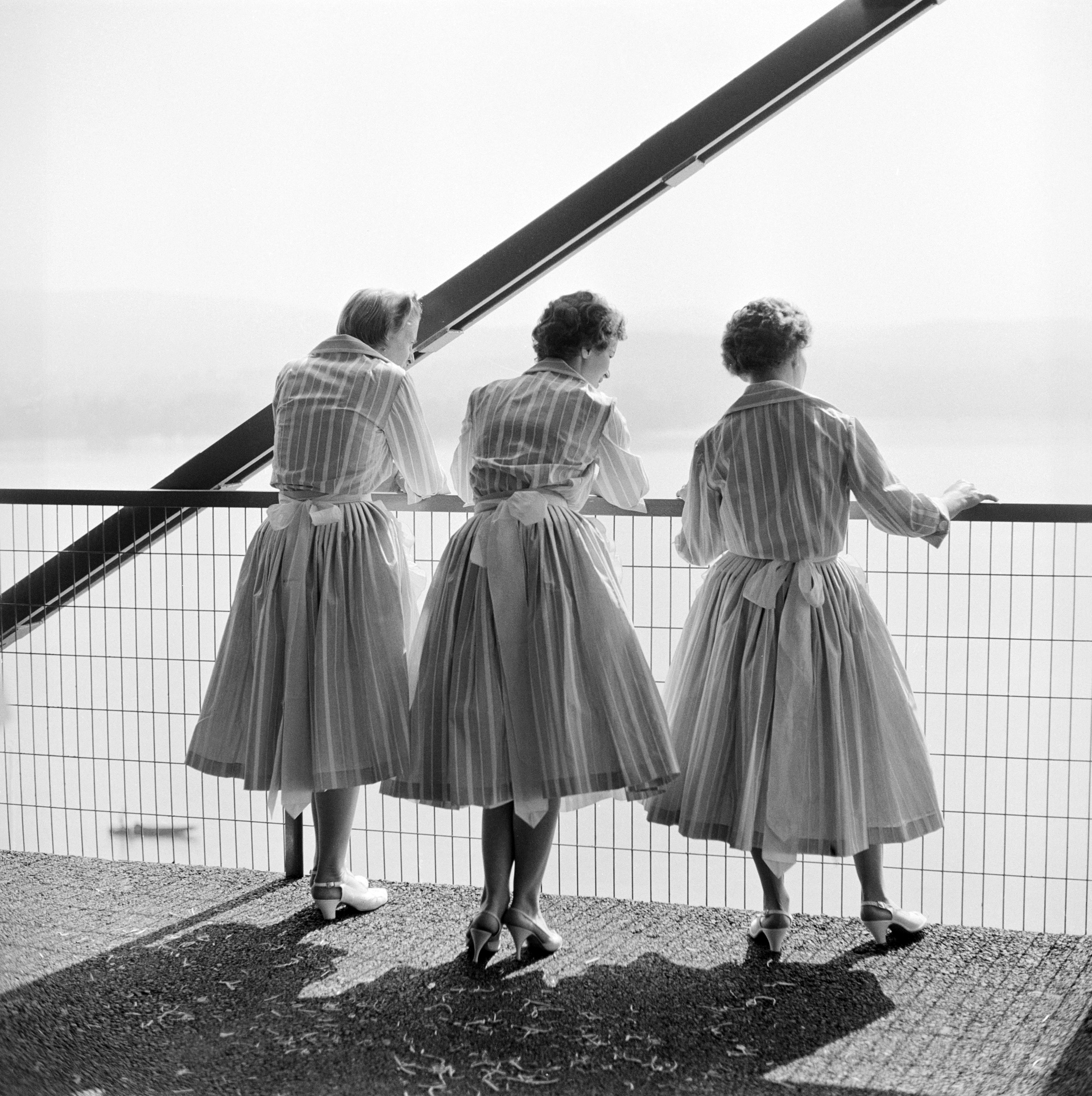Gender wage gap widens in Switzerland

New figures showing a widening pay gap between men and women in Switzerland have surprised observers and could bolster campaigners’ arguments for a nationwide minimum wage to reduce disparities, which goes to the vote on May 18.
An extensive survey carried out by the Federal Statistics Office released on April 28 reveals that the gap between men’s and women’s salaries, which had progressively narrowed over recent years, had grown by 0.5% between 2010 and 2012. Women earned on average 18.9% less than men with the same profile.
Sylvie Durrer, director of the Federal Office for Gender Equality, said it was not clear what factors were driving these “worrying” results: “We still need to study the details to see how much this can be attributed to objective factors like levels of education and responsibility and how much is discrimination.”
In 2010 the statistics office estimated that 40% of Switzerland’s gender pay gap was unexplained and probably pure discrimination.
Unions reacted sharply to the news. The Trade Union Federation said the trend was “very worrying” and the inter-professional trade union Unia said it was a “very alarming” sign for women.
Switzerland is one of the worst for wage discrimination, alongside countries like Japan and South Korea, said Trade Union Federation Vice President Vania Alleva: “As one of the richest nations in the world, which lacks qualified labour and where women contribute enormously to the economy, it’s intolerable to be among the worst.”
With less than three weeks to go before the nationwide vote for the introduction of a minimum wage in Switzerland, the survey gives plenty of ammunition to supporters of the initiative, who are trailing in the polls.
“Of the CHF7.7 billion ($8.7 billion) that women lose through discriminatory wage deals every year, CHF1 billion would be paid back thanks to the initiative,” said Alleva.
The highest wages paid in the Swiss private sector increased 50% more than the lowest wages between 2002 and 2012, according to the Federal Statistics Office.
The worst paid 10% of workers earned less than CHF3,886 ($4,412) gross per month of full-time work in 2012, an increase of 9.5% over the 10-year period. In comparison, the highest-paid workers earned an average of CHF11,512 per month, an increase of 22.5% over 1992.
Wages in the private sector varied greatly by branch, with bankers earning an average of CHF9,823 per month, whereas workers in gastronomy, for example, earned CHF4,272 per month.
In 2012 there were around 268,000 low-wage full-time equivalent positions (i.e., positions paid at most two thirds of the mean income) in the private sector. Of 339,000 people holding these positions, almost 67% were women.
With an average median monthly wage of CHF6,369, Swiss citizens earned more than foreigners, regardless of the foreigners’ residence status. Foreigners with short-term residence permits earned an average of CHF4,672 monthly; foreigners with limited (B) residence permits earned an average of CHF 5,552 per month; foreigners with unlimited residence permits (C) earned CHF5,671 per month; and cross-border workers earned an average of CHF5,896 per month.
The wage structure survey is conducted once every two years. For 2012 information was collected from almost 35,000 private sector companies with a total of 1.5 million employees.
Different state of mind
The statistics office estimates that two-thirds of the 339,000 people who held low paid jobs in 2012 – earning two-thirds of the median salary of CHF6,000 – are women. Low paid jobs dominated by women are especially prevalent in the retail sector (19.7%), hotel industry (38.1%) and the service sector (51.9%).
Employer associations, which oppose the introduction of a minimum salary, have often declared that women’s salaries should be considered as secondary household incomes.
Hans-Ulrich Bigler, director of the Association of Small and Medium-sized Enterprises, gave this message in an interview with Geneva’s Courrier newspaper in February.
“These people [low salary earners] can generally count on another salary which is higher than theirs. Women who work part-time and for less than CHF22 an hour do so to contribute to the household,” he commented.
In a similar vein, Roland Müller, president of the Swiss Employers’ Association, believes the gender wage gap is down to a different “state of mind” between male and female workers.
“For some well-paid posts you have to be prepared to give more effort. It’s really men who are ready to accept the extra hours,” he told the Bund and Tages-Anzeiger newspapers.
He added that women generally preferred “regular hours and work conditions that are less unpredictable”.
Unions roundly dismissed these arguments.
“It’s shocking to blame women for the discrimination they are victims of, just like it’s unacceptable to say a second household income has less value,” reacted Alleva.
“Women are very effective during their studies, as members of associations and at home, so why shouldn’t they be at work?” added Sylvie Durrer.
Heads and brick walls
So far, the federal authorities have always supported voluntary measures to end wage discrimination. In 2009 employer and union associations launched a project to discuss wage equality offering Swiss firms the possibility of cross-checking the wages they paid to ensure they offered gender parity.
The objective was to get 100 companies signed up to the scheme by 2014, but so far only 50 have joined.
“If we conclude that the voluntary approach is not satisfactory, we have to create the foundations for more coercive measures,” the project deputy director Luzius Mader told swissinfo.ch in 2013.
“This discussion didn’t get the results we were looking for. Only 230,000 employees fell under the scheme and half the firms were from the public or broader public sectors,” said Durrer.
Unions say it is high time the government announces more binding measures. On top of a minimum wage, the Trade Union Federation is also calling for more companies and industries to introduce collective bargaining agreements and for the creation of more affordable nurseries.
Acknowledging the failure of these voluntary experiences, Justice Minister Simonetta Sommaruga is set to present a project this summer regarding non-discrimination measures proposed since 1996 which are outlined in the sex equality law, according to the Swiss News Agency.
“There is great public interest to resolve these issues,” said Durrer. “Wage discrimination doesn’t only affect women. It also has an impact on many families, in particular single-parent families who struggle to make ends meet, as well as the entire Swiss social security system.”
(Translation from French by Simon Bradley)

In compliance with the JTI standards
More: SWI swissinfo.ch certified by the Journalism Trust Initiative
















You can find an overview of ongoing debates with our journalists here . Please join us!
If you want to start a conversation about a topic raised in this article or want to report factual errors, email us at english@swissinfo.ch.